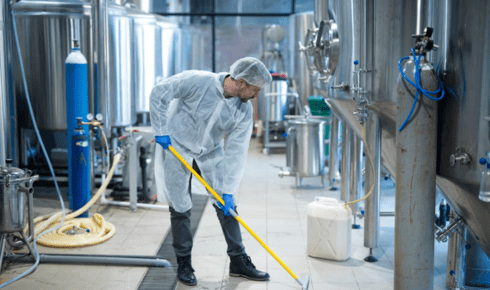Protective coatings play a crucial role in maintaining the integrity and efficiency of polystyrene reactors. These reactors are essential components in chemical processing. They require specific safeguards to endure harsh environments. A protective coating for polystyrene reactor ensures durability and performance. This article explores how these coatings enhance reactor functionality. We will also discuss their importance in various industrial applications.
Understanding Protective Coating for Polystyrene Reactor
A protective coating for polystyrene reactor refers to specialized materials applied to safeguard the surface. These coatings shield the reactor from external factors such as corrosion, heat, and chemical exposure. In chemical processing, reactors face constant wear and tear. The right coating minimizes damage and extends the lifespan of the equipment.
Chemical plants often operate under extreme conditions, making protective coating for polystyrene reactor an essential component of operational efficiency. These coatings ensure that reactors remain functional despite challenges like high temperatures and corrosive environments. Without proper protection, the reactor could degrade quickly, affecting production rates and increasing maintenance costs.
Enhancing Durability with Specialized Coatings
Durability is a key factor when choosing coatings for polystyrene reactors. These coatings must withstand high temperatures and corrosive chemicals. Specialized formulations provide superior resistance to environmental stressors. For instance, epoxy-based coatings offer excellent adhesion and protection against moisture. This makes them ideal for use in humid or wet environments. Additionally, they resist abrasion, which is critical for maintaining smooth reactor surfaces.
Preventing Corrosion and Chemical Damage
Corrosion poses a significant threat to polystyrene reactors in chemical processing. It weakens the structure and compromises safety. Protective coatings act as barriers, preventing corrosive agents from reaching the reactor’s core. Certain coatings contain inhibitors that neutralize corrosive elements upon contact. This proactive approach prolongs the life of the equipment.
Improving Efficiency through Thermal Insulation
Thermal insulation is an important benefit of protective coatings for polystyrene reactors. These coatings help maintain consistent temperatures during chemical processes. Consistent temperatures improve reaction rates and product quality. Materials like silicone and ceramic provide exceptional thermal resistance. They reflect heat away from the reactor, reducing energy consumption.
Maintaining Hygiene Standards in Chemical Processing
Hygiene is a critical consideration in many chemical processing facilities. Protective coatings for polystyrene reactors contribute to maintaining cleanliness standards. Smooth, non-porous surfaces prevent contamination from bacteria or debris. This is especially important in food-grade or pharmaceutical applications. Cleanliness ensures compliance with industry regulations and protects end-users.
Cost Savings through Extended Equipment Life
Investing in protective coatings for polystyrene reactors leads to significant cost savings. By extending the life of the equipment, companies reduce replacement and repair expenses. Repairs caused by corrosion or chemical damage can be costly and disruptive. Preventative measures like coatings minimize these issues. This translates to lower operational costs and increased profitability.
Selecting the Right Coating for Your Application
Choosing the correct protective coating for polystyrene reactors requires careful consideration. Factors such as operating conditions, chemical exposure, and budget influence the decision. Consulting experts in the field helps identify the best options available. Customized solutions may be necessary for unique applications. Testing potential coatings under simulated conditions ensures compatibility with existing systems.
Conclusion
Protective coatings for polystyrene reactors are indispensable in modern chemical processing. They enhance durability, prevent corrosion, and improve efficiency. These coatings also support hygiene standards and deliver cost savings over time. By investing in quality protective layers, companies ensure reliable operations and extended equipment life. As technology advances, new coating solutions continue to emerge.



